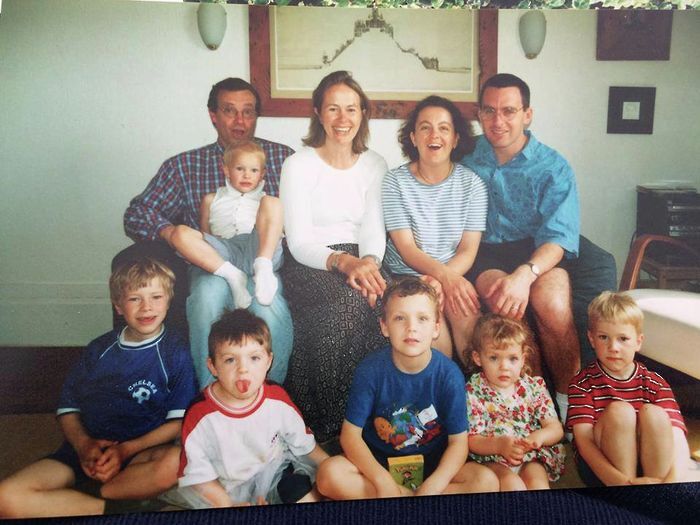Hypocrisy is the best policy
Stephanie Christenson says that we should take pride in “the good enough”, and not be scared of being a hypocrite

Content Note: This article contains discussion of eating disorders and dieting.
Knocking someone off their perfect pedestal is an unparalleled delight. It’s that glorious ‘HA!’ moment we all dream of. It’s why so many of us had to stifle a giggle at Ricky Gervais’ now infamous speech. The same happened when newspapers published the holiday habits of the oh-so-environmentally-minded Harry and Meghan. The best part is that there’s endless scope for identifying inconsistency. There’s the leather boots some haughty virtue-signallers snuggle their toes into, the mountainous air miles on some vegan foods, or just the time the ‘nice’ person wasn’t actually that nice.
While I would never condemn harmless bitchiness behind closed doors, I do think that, if we’re to make any progress at all, it’s necessary to start taking a different approach, especially when it comes to our moral compass. I’ve had many friends, for instance, try Veganuary only to discover milk powder in Alpen products and abandon it entirely. That’s the perception nowadays: you can either be perfect, or abandon the pursuit altogether.
But I would argue quite the opposite. Hypocrisy is not only more approachable in the short term, and sustainable in the long term, but it’s also far more heroic.
“The ideal of the perfect gets in the way of the good enough.”
I know from my own haphazard dieting attempts that ridiculously high expectations only set you up to go quite the other way. At school, I didn’t just want to be slim, I wanted to be Victoria’s-Secret-level thin. And, inspired by my skinny colleagues who had begun only eating leaves, I knew it would have to be the same for me. A single biscuit would unravel all success.
But a life of leaves never really appealed. So I never actually started. Worse than that, I told myself each day that my diet would start the next, so I’d wolf down whatever I could squeeze into my stomach, fearing each marvellous meal would be my last. As it happens, those ‘last-ever’ evenings became a habit. The irony was that, when I developed this mastermind plan, I was actually quite skinny to begin with. But, under the pressure of unrealistic expectations, I went quite the other way. I’ve never gained as much weight as I did trying to be a purist about my diet.
The same applies to socially conscious eating habits. Intimidating ideals send people in the opposite direction. So many people sympathise with vegan ethics but, put off by its purism, continue to slap meat on their plates three times a day. Why even attempt something so unachievable? The ideal of the perfect gets in the way of the good enough.
I call myself a vegan because it’s a close-enough description of my diet, though many have leapt up with their pitchforks to disagree. Since my grounds are environmental, and since I’m desperately drawn towards forkfuls of pork, I allow myself the odd loophole, whether it’s meat that’s about to be thrown away or the odd bite of something I haven’t financially contributed to. Yes it’s flimsy and fallacious, but it works. It keeps me going. It means that I - an individual with the willpower of a teaspoon - have stuck with it for over a year now.
Shouldn’t that be what counts? Shouldn’t the direction of travel matter so much more than being a purist about every step we stake? There’s no need to denounce the vegetarian who buckles at bacon’s behest. The same goes for the vegan who surreptitiously sips her friend’s cow milk cappuccino. Both are going in the right direction. That in itself ought to be cause for celebration.
To avoid hypocrisy, on the other hand, is to avoid setting standards for yourself altogether. It certainly makes life easier. Someone who identifies as a bad person has no expectation of good behaviour to live up to. Someone with no values cannot be accused of breaking them. In my own experience, it stems from a lack of faith that you’ll be able to maintain the standard you set for yourself.
To strive for something, knowing you’re unlikely to succeed but trying anyway for the sake of a greater cause: that is the essence of real heroism. In fact, although I’ve shed many of my religious beliefs, it’s the one idea that keeps my little toes trotting up to communion - that we inevitably fall short, but we strive anyway, and that is what makes us good. What could be more human? What could be more heroic?
I’m a vegan who snaffles her mother’s chocolate supply. I’m also a feminist who will have a bad day if her hair tresses don’t fall quite right. I’m a firm believer in complete transparency and yet will occasionally pathologically lie in order to maintain my own privacy.
I’m proud to be a hypocrite in almost everything I do. It means I have values. It means I’m finally trying.
 News / Cambridge study finds students learn better with notes than AI13 December 2025
News / Cambridge study finds students learn better with notes than AI13 December 2025 News / Cambridge Vet School gets lifeline year to stay accredited28 November 2025
News / Cambridge Vet School gets lifeline year to stay accredited28 November 2025 Science / Did your ex trip on King’s Parade? The science behind the ‘ick’12 December 2025
Science / Did your ex trip on King’s Parade? The science behind the ‘ick’12 December 2025 News / Uni Scout and Guide Club affirms trans inclusion 12 December 2025
News / Uni Scout and Guide Club affirms trans inclusion 12 December 2025 Arts / Modern Modernist Centenary: T. S. Eliot13 December 2025
Arts / Modern Modernist Centenary: T. S. Eliot13 December 2025










